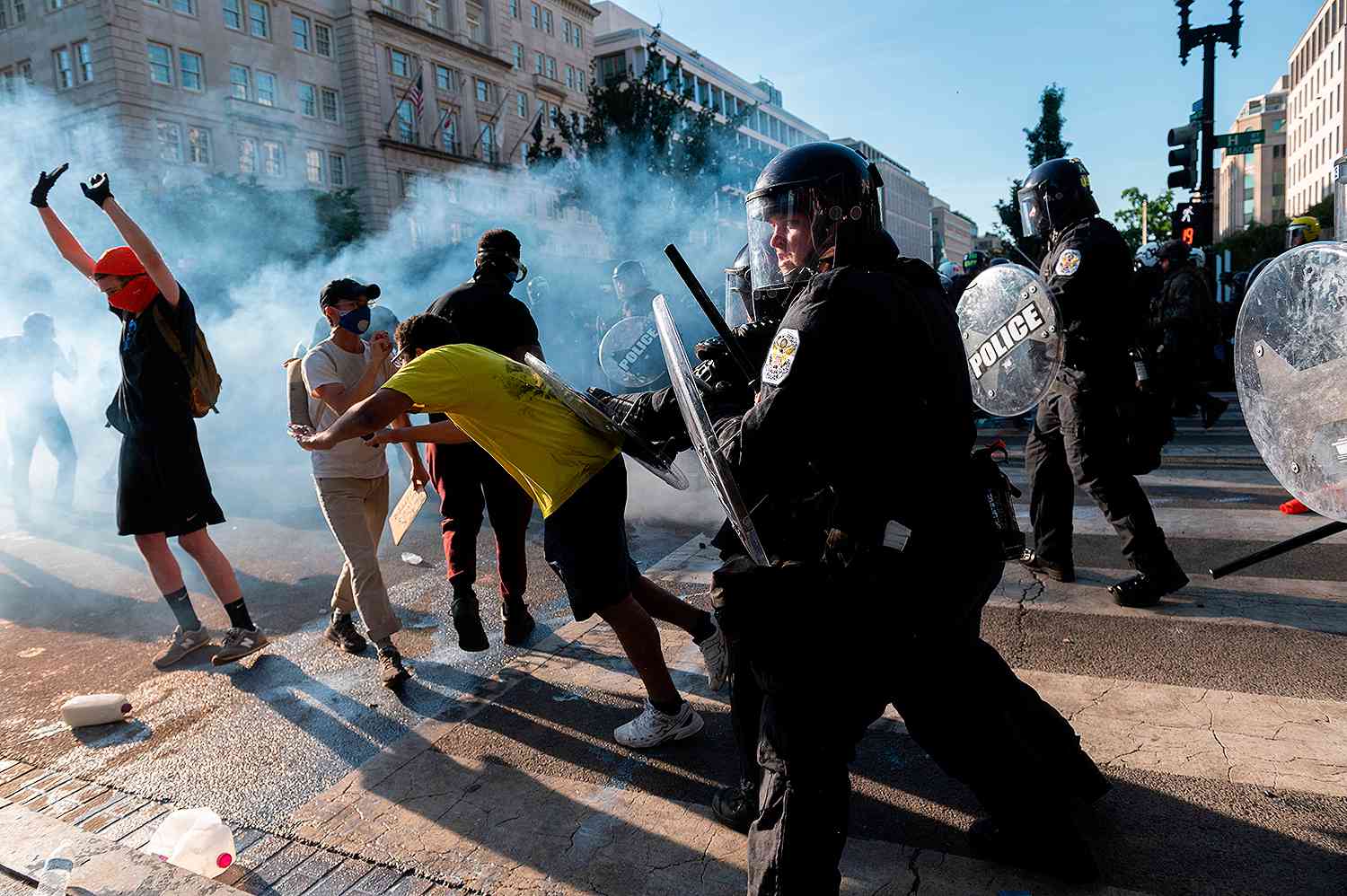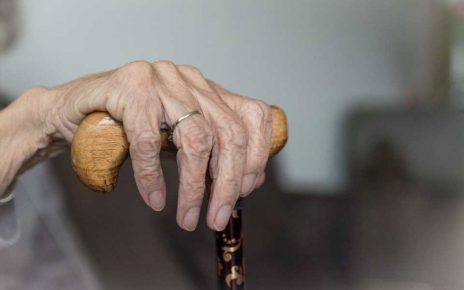
As protesters lined the streets in cities across the country following the death of George Floyd while in police custody, law enforcement has repeatedly used tear gas to push back the marchers.
Tear gas — a chemical compound first used in World War I and considered a “riot control agent” by the Centers for Disease Control — causes an immediate burning pain in the eyes, mouth, throat, lungs and skin, and temporarily makes people “unable to function,” the CDC says. But tear gas can also leave lasting effects on the respiratory system, including lung damage and respiratory illnesses, along with blindness and glaucoma.
Both the short- and long-term effects of tear gas are particularly problematic during the COVID-19 pandemic. With protesters gathered in close quarters — which already has health experts concerned about a spike in cases in the coming weeks — when they’re hit with tear gas and start coughing, that quickly expels the respiratory droplets that are the main cause of COVID-19 transmission.
And any long-term damage to the lungs can compound the symptoms of COVID-19, which primarily attacks the respiratory system.
Health experts and researchers, like Sven-Eric Jordt, a professor of anesthesiology at Duke University who has studied the effects of tear gas, are concerned about the liberal use of tear gas at the protests this past week.
“I’m really concerned that this might catalyze a new wave of COVID-19,” he told The New York Times.
For protesters who are hit with tear gas, the best immediate treatment is to get to fresh air as soon as possible. Higher ground is better, as the tear gas forms a cloud that can stay closer to the ground, the CDC says.
Then, wash out the eyes, face or any affected areas with a 50/50 mixture of milk of magnesia, also known as magnesium hydroxide, and water, CNN reported. Regular milk works as well, along with a mix of water and baking soda.
On Monday night, Attorney General Bill Bar ordered federal law enforcement to spray peaceful protesters in Washington, D.C.’s Lafayette Square with tear gas to clear out the area so President Donald Trump could cross the street from the White House to pose for photos at a church.
The American Civil Liberties Union decried the decision to use tear gas, and said that it could harm both protesters and the law enforcement deploying it, as was seen in Atlanta when, in one instance, the tear gas immediately flew back on police officers.
“This appears to be grossly unjustified use of a dangerous chemical weapon on protesters and raises serious human rights concerns under international law,” Jamil Dakwar, director of the ACLU's Human Rights Project, said in a statement. “Health experts warned that the use of tear gas can have long-term effects on respiratory function. Elected officials, including Congress, must investigate this politically-motivated and life-threatening use of indiscriminate weapons.”
To help combat systemic racism, consider learning from or donating to these organizations:
- Campaign Zero (joincampaignzero.org) which works to end police brutality in America through research-proven strategies.
- ColorofChange.org works to make government more responsive to racial disparities.
- National Cares Mentoring Movement (caresmentoring.org) provides social and academic support to help black youth succeed in college and beyond.
Source: Read Full Article



